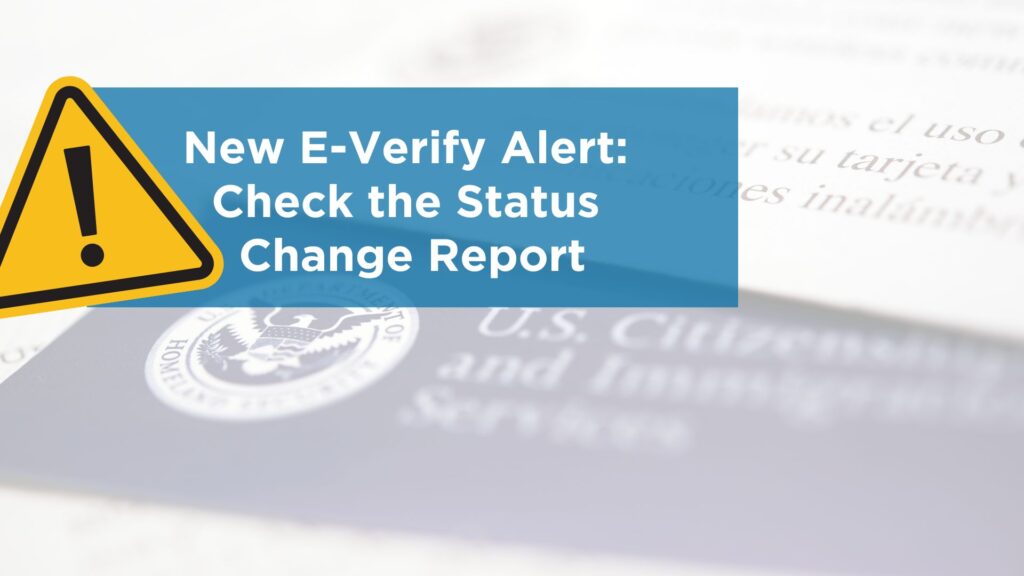
On June 20, 2025, the Department of Homeland Security (DHS) rolled out a significant compliance update for U.S. employers who participate in E-Verify. This update introduces a new “Status Change Report” designed to help businesses identify employees whose Employment Authorization Documents (EADs) have been revoked due to the termination of their immigration parole.
If your company employs individuals under humanitarian parole programs—especially Cuban, Haitian, Nicaraguan, or Venezuelan (CHNV) nationals—this alert should be a priority on your compliance radar.
What Changed?
DHS has started revoking EADs issued to certain parolees whose status has been terminated. These revocations can happen individually or in groups and are no longer just administrative footnotes—they’re now directly impacting employer obligations.
To aid compliance, DHS introduced the Status Change Report, available through the E-Verify portal under the “Reports” tab. This tool replaces the old Case Status Alerts system and now gives detailed data including:
- Revocation date
- E-Verify case number
- A-number of affected individuals
This is critical because DHS considers the data in this report as constructive notice—meaning employers are now presumed to be aware that certain employees may no longer be work-authorized.
What Employers Must Do
If you are an E-Verify employer, here are your new action steps:
- Regularly Access the Status Change Report
- Log in to your E-Verify account and generate the report.
- Narrow by revocation date or download the full dataset.
- Your employer agent can do this for you if applicable.
- Reverify Immediately Using Form I-9 Supplement B
- Do not create a new E-Verify case.
- Reverify each listed employee using acceptable unexpired documents from List A or List C.
- Do not accept the revoked EAD, even if it appears unexpired.
- Ensure Uniform Compliance
- Apply consistent reverification timeframes for all affected employees.
- Document your process and communication with employees thoroughly.
- Be cautious: non-compliance can risk fines or allegations of unauthorized employment.
Legal Gray Areas Employers Should Monitor
- DHS has not specified how frequently employers must check the new report.
- There’s also no defined timeline for how long employees have to produce alternative documentation.
Until these ambiguities are clarified, employers should operate under reasonable, well-documented policies and consult with immigration counsel to minimize risk.
How VKM Law Group Can Help
At VKM Law Group, we understand how quickly immigration policies can shift—and how complex employer compliance can become. Our experienced immigration attorneys in New Jersey are here to help:
✅ Review and audit your current E-Verify practices
✅ Guide you through reverification processes under I-9 rules
✅ Minimize legal risks and exposure to non-compliance penalties
✅ Train your HR teams on best practices and policy changes
Let us help you protect your business and your people.
📞 Contact VKM Law Group today for a consultation or to schedule an E-Verify compliance audit.